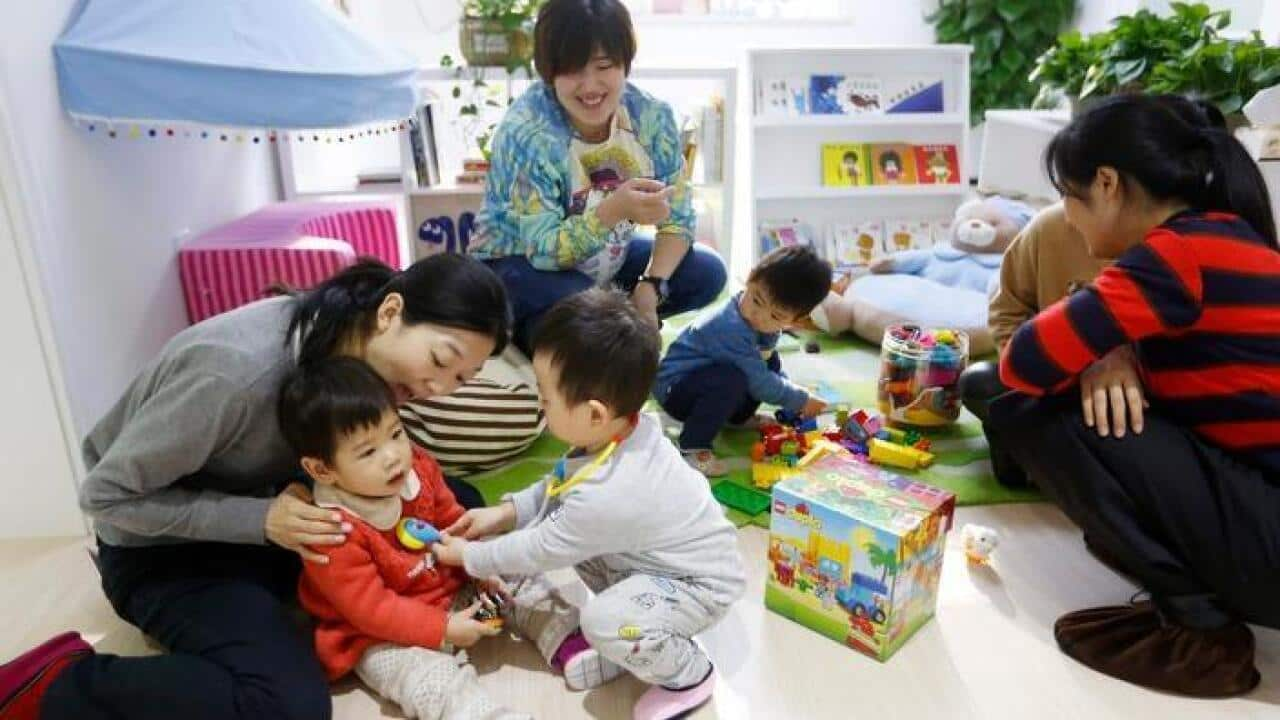A widely circulated CCTV video of a car robbery in Amritsar a few days ago has left one mother shaken.
The video shows three men on a motorbike pushing a Sikh youth out of his car and later fleeing with the stolen vehicle.
32-year-old Ravneet Kaur says she feels the real-life crime scene appears to have been inspired from ‘Grand Theft Auto-V’ (GTA -V) - a video game that she says her 10-year-old is hooked on.
“When I saw the video, I felt as if it was a scene straight out of the GTA … only this time it was happening for real”, says Mrs Kaur. “My son is forever hooked on to these games, I am really worried. I feel he is becoming a criminal" adds the concerned mother.
“My son is forever hooked on to these games, I am really worried. I feel he is becoming a criminal" adds the concerned mother.

A snapshot from GTA V (Left); A snapshot from CCTV footage of car robbery (Right) Source: Supplied by Danyal Syed
GTA-V is a multi-billion dollar game series that allows players to navigate through various missions and earn points by destroying vehicles, stealing cars, selling drugs and killing civilians and police officers.
"Imagine being rewarded or appreciated for killing, hitting, stealing. This is exactly what these games do. They glorify violence and crime- young kids have impressionable minds. They do what they see” - Ravneet Kaur
But Ravneet is not the only one with concerns, research indicates that every parent across the globe with a child old enough to press a few buttons is grappling with these questions.
A mother of two sons aged eight and 12 from Adelaide, Sukhleen Kaur Johar says she was oblivious to the fact that her older son's cranky behavior could have been affected by the amount of time he was spending jostling the joysticks, until she happened to discuss it with a friend who's a psychologist back in India.
She told SBS Punjabi that until last year her son was spending nearly twelve hours every week playing games outside school hours.
"She (psychologist) asked me to notice if he was behaving differently after playing games."
"And rightfully so, he was becoming rude and reclusive with every passing day. I was shocked when I realized that a game that I thought was keeping my hyperactive son away from all sorts of mischief was actually making him more aggressive and uncooperative" - Sukhleen Johar
The version of the game which was released in 2013 received widespread criticism for its violent and sexually explicit content so much so that it was removed from sale from all Target and Kmart stores - arguably the two most popular retail stores in Australia.
But despite the criticism, the controversial game broke industry records by becoming the fastest selling entertainment product in history - perhaps persuasive evidence of the fact that the lure for video games is very real.
Psychologist Professor Harleen Arora believes that escapism and socialization are two facets of the virtual world that attract the kids.
"The games allows the child to escape into a world free of stress, deadlines and responsibilities. And at the same time enables them to socialize and befriend like minded people who just like them love to stay in the virtual world."- Harleen Arora, Psychologist and professor
The outcome, experts say, is an increasing number of parents concerned that their children are in fact addicted, or at least compulsively devoted to the games.
But they warn that kids alone can't be held responsible for their love for games.
"Parents, if not more, are equally responsible. Every time a child cries or creates a nuisance, pat comes out a mobile phone or an iPad", adds Ms Arora.
"Parents need to spend quality time especially with their growing kids so that they don't go looking out for other sources such as these games for the kind of gratification they seek"- Harleen Arora, Psychologist and professor
She further suggests that parents must monitor the games and at the same time set some ground rules. Limiting the number of hours a day can go a long way in regulating a child's behavior, she says.
This simple piece of advice and not an all-out prohibition is perhaps the best solution, adds Ms Arora.




